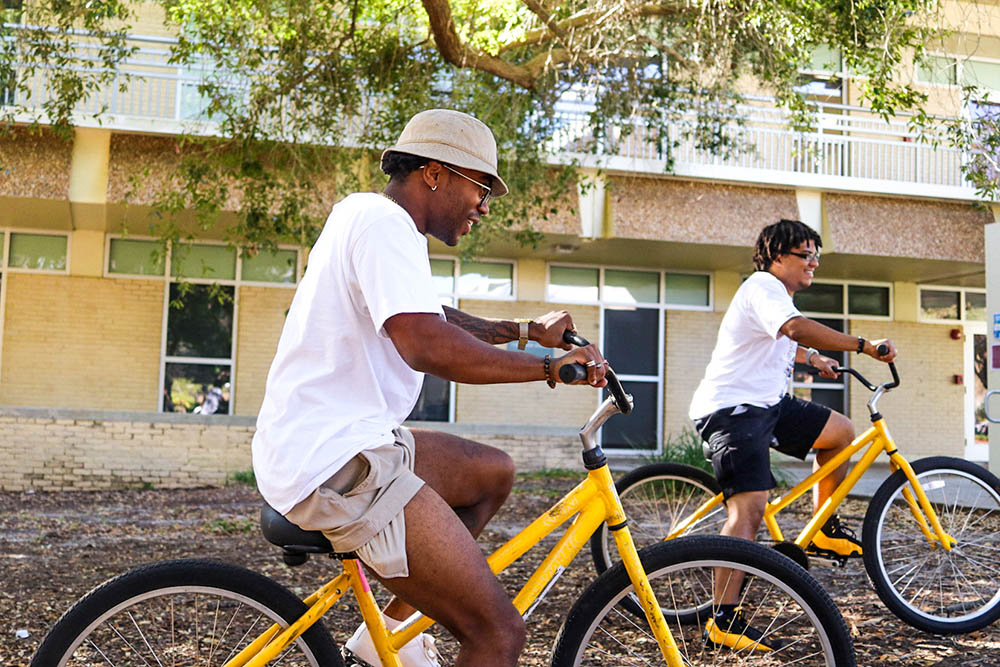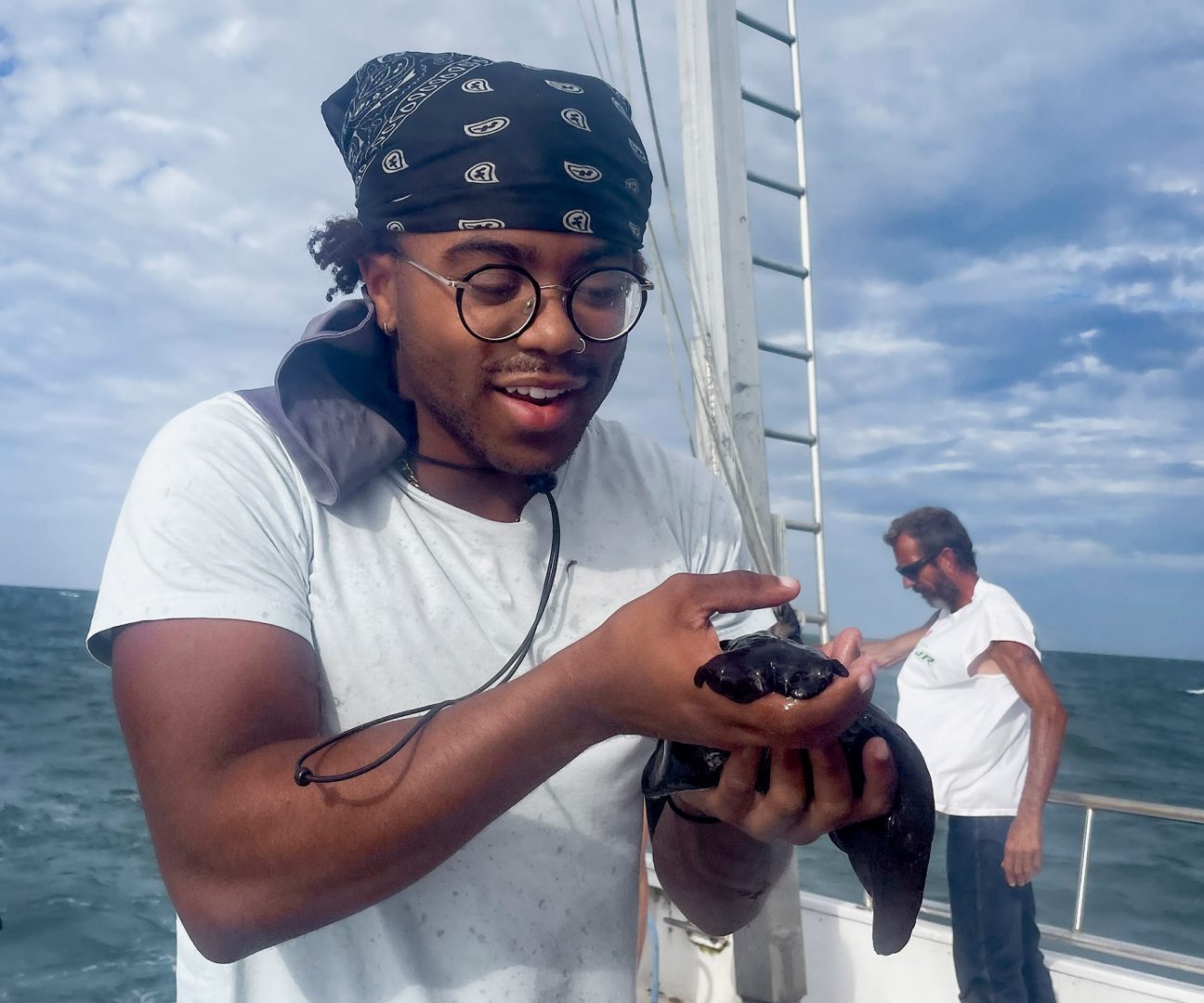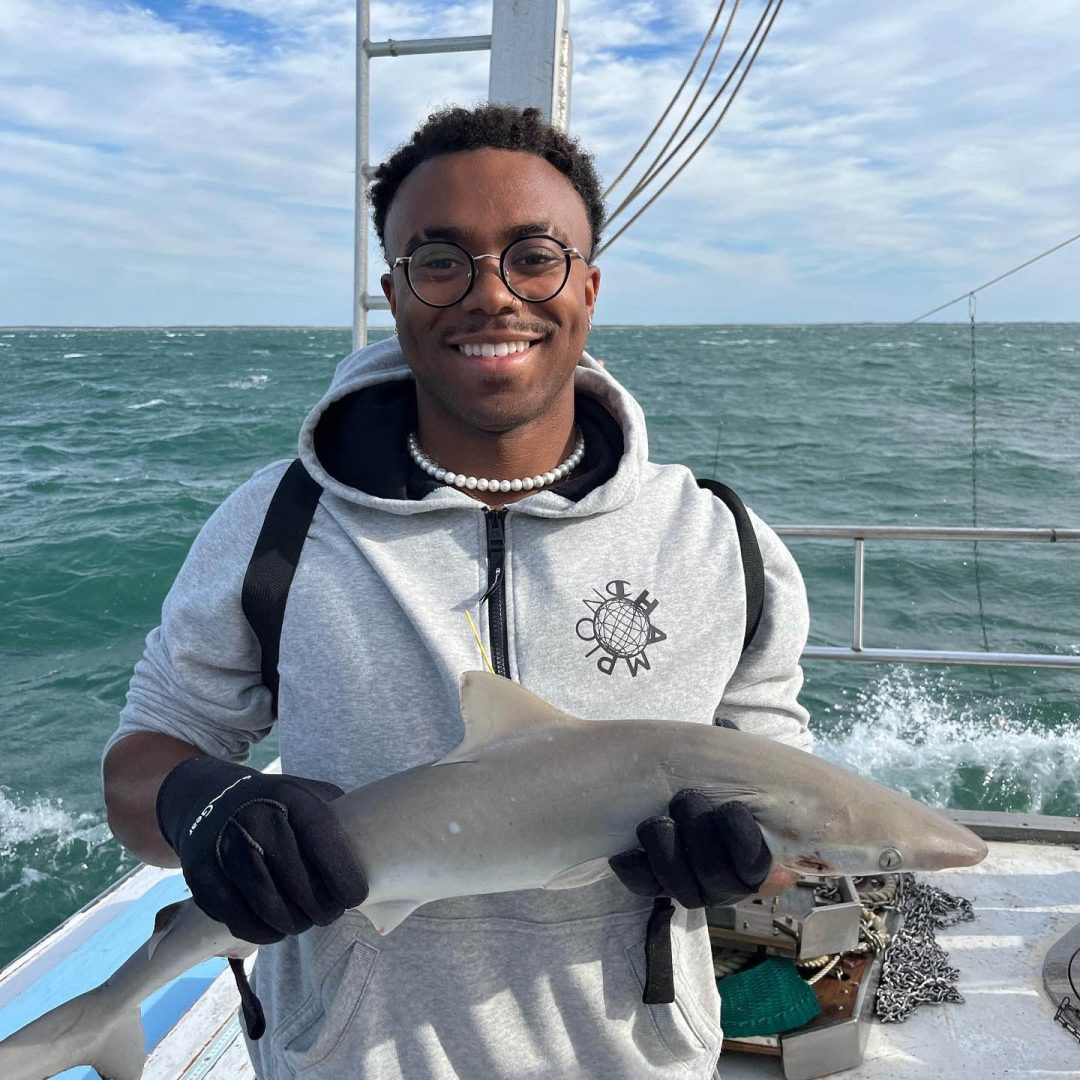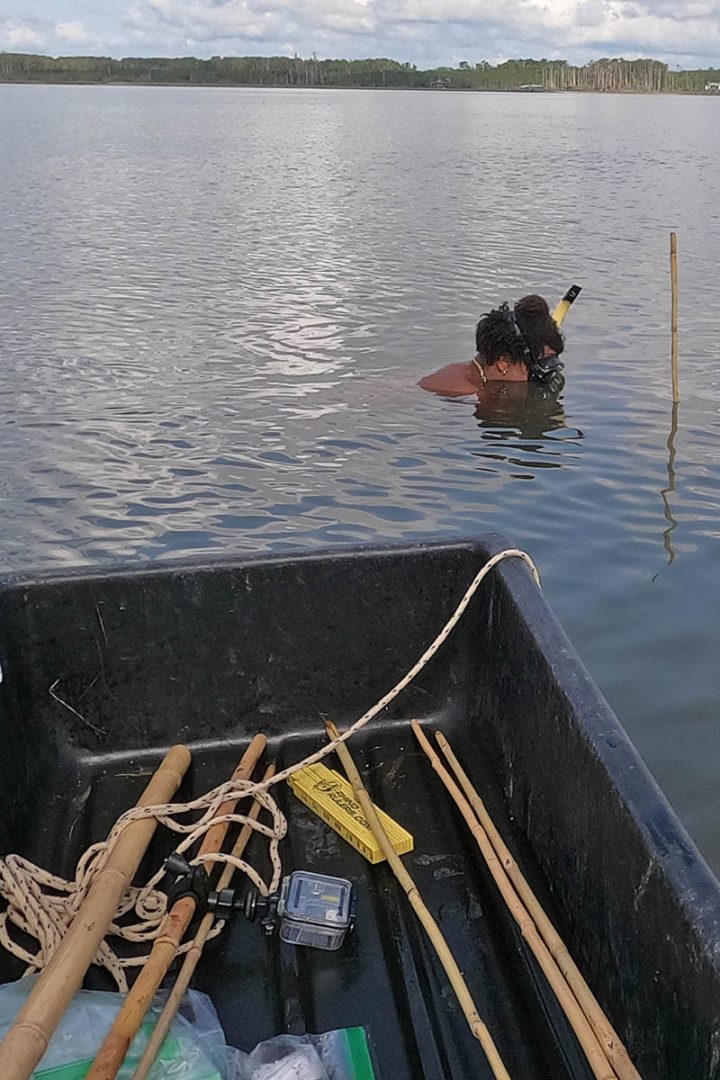Deidric Davis, an Eckerd College junior marine science and animal studies student from Fort Worth, Texas, was awarded the Duke University Marine Science and Conservation Scholarship—which two non-Duke students receive every Fall Semester to take classes at Duke University’s Marine Lab in Beaufort, North Carolina.
Deidric has been interested in marine animals since visiting Sea World when he was 4. A certain animal caught his eye among the countless fins in the aquarium tank. Beautiful yellow, blue and orange fish swam behind the glass, but one animal captured his gaze: the hammerhead shark. It swam above his head in the aquarium tunnel, and he was mesmerized by its graceful movement through the water. That was the day Deidric decided what he would be when he grew up.
“I don’t remember a time when I didn’t want to do marine science,” he says. “But living in Texas made that pretty difficult.”
Growing up, Deidric never felt pressure from his parents to do well in school, despite his mother being a school teacher. He has always been self-motivated, and he demonstrated that by taking Advanced Placement classes to boost his GPA and get into a good college.
When it came time to apply, he Googled “best marine science schools” because what he wanted to study was never in question. The real question was where he could get the best education.
“I fell in love with the waterfront campus and was like ‘Okay! I gotta go there,’” he says about choosing Eckerd.
As a marine biology student, Deidric’s goal is to earn a doctorate degree and do his own research on deep-sea sharks, inspired by the Sea World hammerhead. He has been working with his mentor, Associate Professor of Marine Science and Biology Nancy Smith, Ph.D., to gain experience that will facilitate movement toward this career goal—including various scholarship applications and a research opportunity for undergraduates.
The Duke University Scholarship is primarily awarded to students who identify with groups that are racially or ethnically underrepresented in the marine science field.
The program allows scholars to enroll in four full-time courses at the marine lab. For Deidric, those include Invertebrate Biology lab, Comparative Marine Physiology lab, Marine Mammals and an independent research study focusing on how deep-sea predators compete for food. Deidric was initially on the fence about applying to this program, but encouragement from his friend Anjali Boyd ’19 and Dr. Smith convinced him to take the leap.

Earlier on campus, Deidric (foreground) joined fellow marine science student Elliot McPhatter ’24 on a yellow-bike ride. Photo: Angelique Herring ’19
“I am a strong proponent of students doing semester experiential programs,” Smith says. “I think it’s good for a student to really explore and experience other institutions and have international experiences or internships. All it takes is a little academic planning.”
Now that he’s settled in at Duke, Deidric says the experience and connections coming from this semester are going to be pivotal in his career. In January, he will return to Florida to resume his academic program at Eckerd. All of his classes at Duke are comparable to required classes on Eckerd’s marine biology track, so he’ll stay on course to graduate in 2024.
“I love Eckerd, but I really like that I get this experience to learn new things that I couldn’t learn there,” Deidric says. He is excited to bring all of this new knowledge back with him in January.















